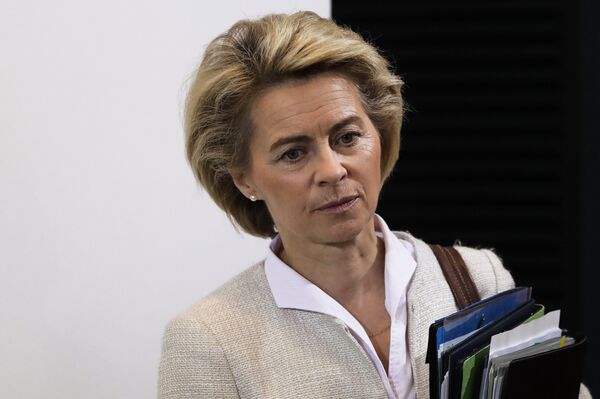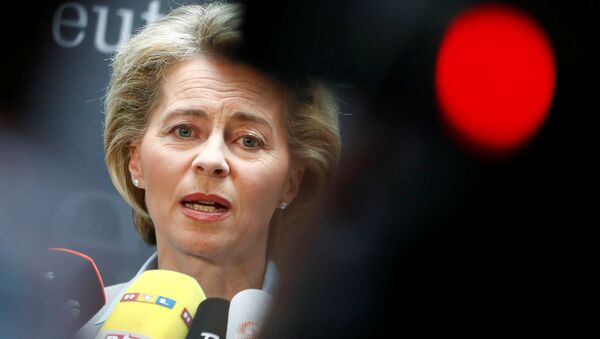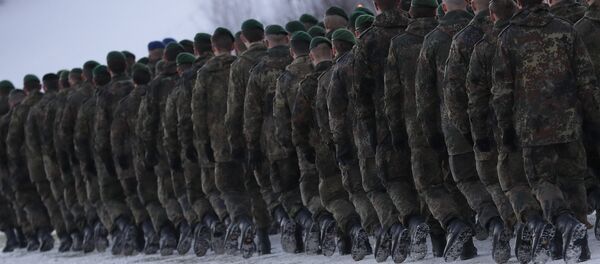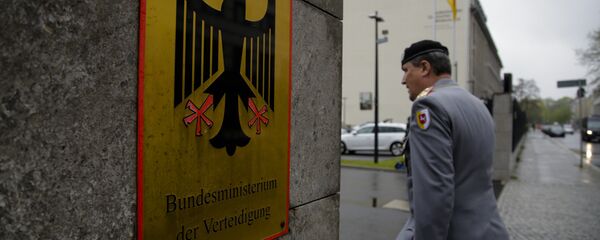German Defense Minister Ursula von der Leyen announced that it might take months to navigate the military for what she called "weak leadership," which the German government believes may have created the sufficient conditions for far-right extremist beliefs to flourish. There have long been concerns about neo-Nazi infiltration into the ranks of Germany's military.
It was reported that by Tuesday, May 9, German police had detained two soldiers and a civilian, over what prosecutors say was a plot to carry out an attack and use fake identification to scapegoat a migrant as the perpetrator. According to prosecutors, one of the soldiers has been identified as Lieutenant Franco Albrecht and the other only as Maximilian T. A student was also found to be involved, he has been identified as Mathias F.
They have been arrested over conspiring to kill pro-refugee politicians, and then use a fake identity Albercht created of a Syrian refugee to dupe the authorities and public into thinking it was an Islamist attack. The prosecution added that the three suspects hoped the murder of pro-refugee politicians "would be seen by the population as a radical Islamist terrorist act committed by a recognized refugee."
Von der Leyen announced a series of reforms for Germany's armed forces, including a review of its 1982 "decree on traditions" which allows for the display of Wehrmacht memorabilia within "historical contexts." After revelations that Nazi-era helmets and pictures were sometimes displayed in German army barracks, Defense Minister Von der Leyen said that the current rules "include many good points but allow for back doors." She added that the German military needed to improve its political education and give "a faster and more efficient" way of reporting far-right incidents.

Von der Leyen's reforms will include purging the military of links wit the Nazi-era Wehrmacht symbols and memorabilia. The Wehrmacht was the unified armed forces of Nazi Germany from the year 1935-46. It was made up of the conventional ground military, the Nazi-era naval force and air force. The Wehrmacht was seen as emblematic of German resistance to what were perceived by Hitler and the Nazis as the unfair terms of the Treaty of Versailles that were imposed on Germany by the allied powers following its defeat in World War I. The treaty laid down strict limitations on the capabilities of the German military, essentially rendering it incapable of offensive action.
The three suspects in question, including two soldiers — Franco A. and Maximilian T. — have been arrested and detained in connection with the plot to carry out what has been described by the German government as "a grave act of violence against the state." Both men were allegedly under the watchful eye of the German's military intelligence agency (MAD) before the terrorist plot was revealed. Franco A's masters degree thesis reportedly displayed clear sympathies with the far-right.
"Both were on the radar, both had been noticed, and with both the authorities ignored it. The fact that the MAD closes its files on far-right action, rather than looking closely at what people are doing, is a serious mistake."
Rancour amongst German opposition parties is swelling, with demands being made that information detailing how deeply far-right extremism could have penetrated the military be released.
Not only were the suspects able to get away with their machinations for considerable time without being taken in by the authorities, but it was found that they also stole ammunition from the military's stockpiles, which was found in the apartment of the student, Mathias F.
The German Defense Ministry said in April that the MAD was investigating upward of 275 soldiers suspected of "far-right actions," which in the German context is typically synonymous with propagating Nazi-propaganda or indulging in far-right racism.
Germany has taken in more than one million asylum seekers since 2015, many from Syria, Iraq and Afghanistan, which have been met by an anti-refugee backlash and spikes in hate crimes.




